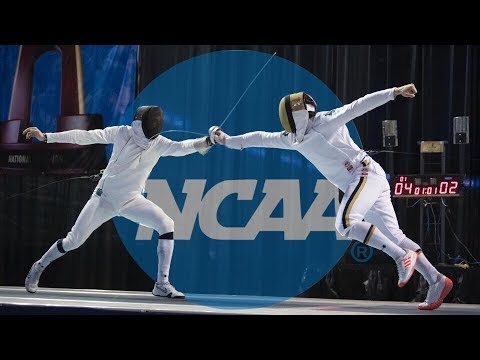Universities look to eliminate niche college sports as funding dries up due to pandemic and admissions scandals

Niche college sports such as fencing could soon be a thing of the past.
In the aftermath of a major college admissions scandal and the global coronavirus pandemic, many colleges are reforming their athletic programs. The “Operation Varsity Blues” investigation revealed many students were getting into elite and Ivy League universities through undeserved scholarships in niche sports. Through bribery and other illegal and unethical means, the wealthy parents of these students got their kids into top schools, resulting in the actual athletes in these niche sports in the class of 2021 and 2022 receiving the short end of the stick. Now, these top universities are looking to rectify the situation.
Despite the lack of popularity in these sports, there is an abundant number of students looking to get into college by playing niche sports, such as squash. The chances of getting into these schools through the niche sports are so high that 83 percent of athletes with a top academic score got an acceptance letter, compared to the 16 percent of nonathletes. This fact of the college admissions process is what caused students, such as Olivia Jade, daughter of actress Lori Laughlin, to look for an easy backdoor entrance into the college of her dreams using a falsified portfolio in the sport of rowing.
Parents who want their kids to get into college in a somewhat less nefarious way spend thousands of dollars a year on equipment, personal trainers, and sports camps that will help their kids get noticed by recruiters from the time they start playing the game to the moment they are given an official offer at their school.
“To progress through the U.S. Squash pipeline, the families of young players shell out up to $400 for a 45-minute lesson with a top pro at least once a week, and in many cases two or three times a week during the offseason,” states an article in The Atlantic. Schools are often looking to fill the spots for these sports, so parents who don’t want their child with mostly good grades to end up at a “less than desirable” school are more than willing to find the money to improve the chances of their child’s acceptance.
However, when coaches are looking for athletes, they are more critical than many parents and students may realize. Coaches will have already compiled a list of athletes that they are interested in during the summer and give that list to admissions offices before applications even start, leaving students who haven’t had the chance to showcase their skills at a disadvantage.
One in five families of an elite high-school athlete spends at least $1,000 a month on sports, with the average family of a lacrosse player spending nearly $8,000 a year. Many families have put themselves deep in debt in hopes that their student/athlete will be able to catch the eye of a college recruiter even knowing that the full scholarship is a rarity in sports other than football and basketball.
In addition to parents working to have their kids “coached-up,” they are willing to bribe recruiters and coaches to secure their child a spot. According to the NCAA, at all but 20 colleges, athletics programs lose more money than they make. With many of the niche sports being a drain on the revenue brought in by the money-making sports such as football and men’s basketball, schools have decided that lowering standards for students to get scholarships in the niche sports is no longer acceptable.
Not only do the niche sports not bring in enough money to keep up with the cost of their operations, but after millions of dollars went to help students who struggled financially during the pandemic, the funding of sports such as fencing, squash, and water polo has become too costly for universities
With the competitive world of niche sports becomes obsolete, so do the classes of 2021 and 2022’s dreams of attending the college of their dreams.










